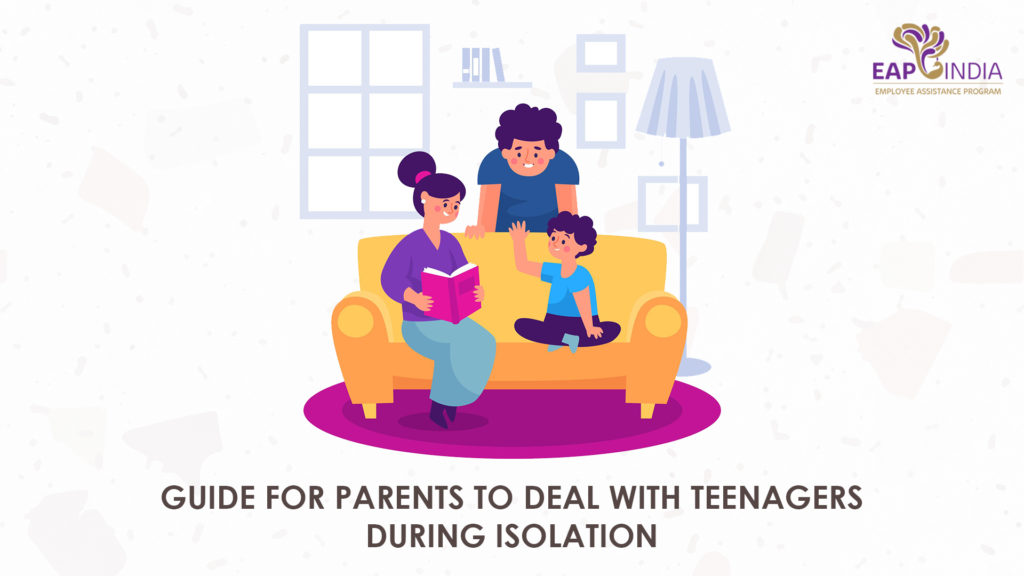All developing teenagers strive for independence, long to be with their peers and look ahead to the future.
Given this, how do we care for young people who aren’t supposed to hang out with their friends and whose plans have been taken away by the pandemic?
Here are some strategies that might help parents in addressing teenagers’ issues when adults themselves are struggling to hold it all together:
1. Provide Space for Disappointment and Sadness
It has been a while since schools have started their coursework online, but we can’t replace what has been lost. We, as adults should be kind and understanding towards their loss of not being able to step out and meet their peers or having their graduation ceremonies conducted virtually. All teenagers have a right to be angry, upset and frustrated about what has become of their year. There was so much that they may have expected, but all their wishes went down for a toss. Instead of telling them that everything is miserable and that they should get over it and focus on their future, allow them to be sad; give them space to let out their emotions. Talk to them with compassion.
2. Make an Environment for Relief and Joy
The same teenagers, who are deeply upset about not being able to attend physical school, might express delight within the next moment. They also at one moment might be grieving about the recent news and losses around, they may also feel joy in managing some commitments they thought they never would be able to keep. They may also be spared with ongoing daily interaction with their teachers, tuitions coaches or classmates.
Nobody expected this situation to affect us so much; thus when see our teenage children sharing their views about how awful they feel, we shouldn’t make them feel blamed at and hopeless, instead ask them to focus on smaller achievements/things that made them feel joyful. Reassure them that embracing the upsides of the disruption doesn’t minimize what they’ve lost or their worries about the impact the pandemic has caused.
3. Expect Friction Regarding Their Social Lives
If you see your child getting frustrated with social distancing norms at home and feel like maybe they can have their friends over, instead of telling them a strict no, try and make them understand why it is not safe to invite any third person home. Educate them about the latest news related to the pandemic and make sure they understand the risks of not following social distancing.
It is highly important for children or teenagers to be around their own age group and when it doesn’t happen, they are bound to get irritated. Just because they have a facility to connect with people online, it doesn’t seem fair to always be online. Being connected online deteriorates their sleep patterns, productive learning, physical activity and face-to-face interactions within family.
4. Allow Some Privacy and Time Alone
Adolescents, like us are humans. We all like spending some time of the day alone, with ourselves. There are some children who like spending all of their time with their family. Respect that like us, they don’t always want people around them and respect their privacy.
Don’t take things personally if they ever tell you that they wish to spend some time alone or want you (parent) sitting next to them but quiet or require some private space within.
5. Treat Teenagers as Problem-Solving Partners
Everybody likes it when they are treated at par with their age. Don’t hesitate in asking your children for some solution if you’re stuck at a problem. Initiating conversations like, “We all have to invent new ways in coping with our new routines. Can you show me what you have in mind so that we can help you schedule your daily routine? By keeping in mind that children are the most creative minds and they appreciate when they are asked for help.
Conclusion
There is still a lot we don’t know about what the future will unfold for us, for our children. We all are worried whether we will be able to ever head out safely or be among our group of friends. But there are some truths that can help us through this difficult time: empathy, resilience and adaptability.







